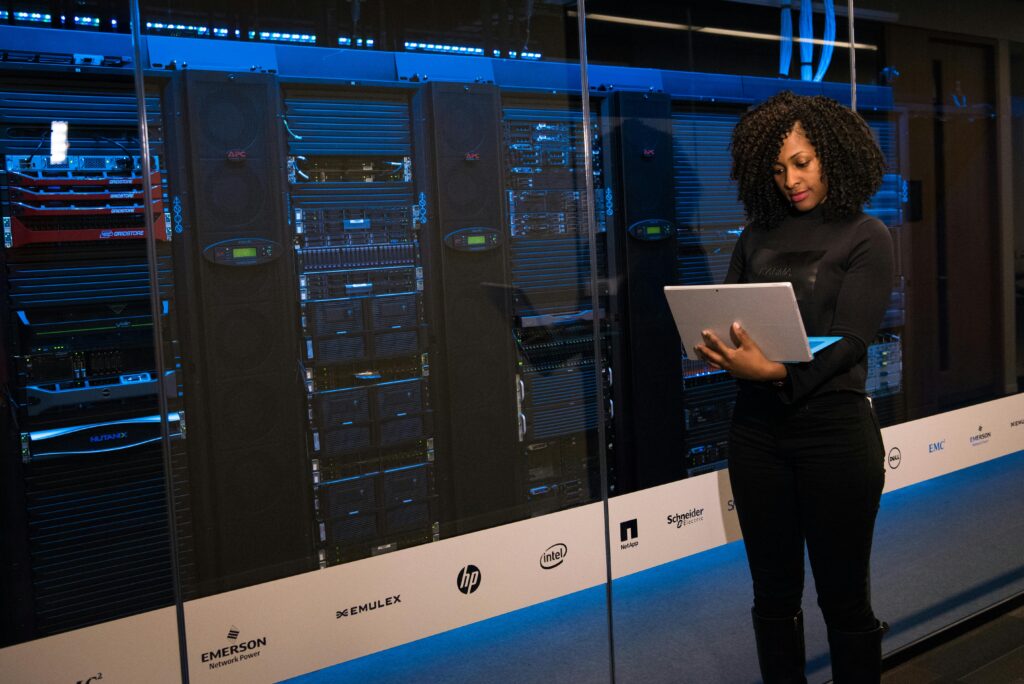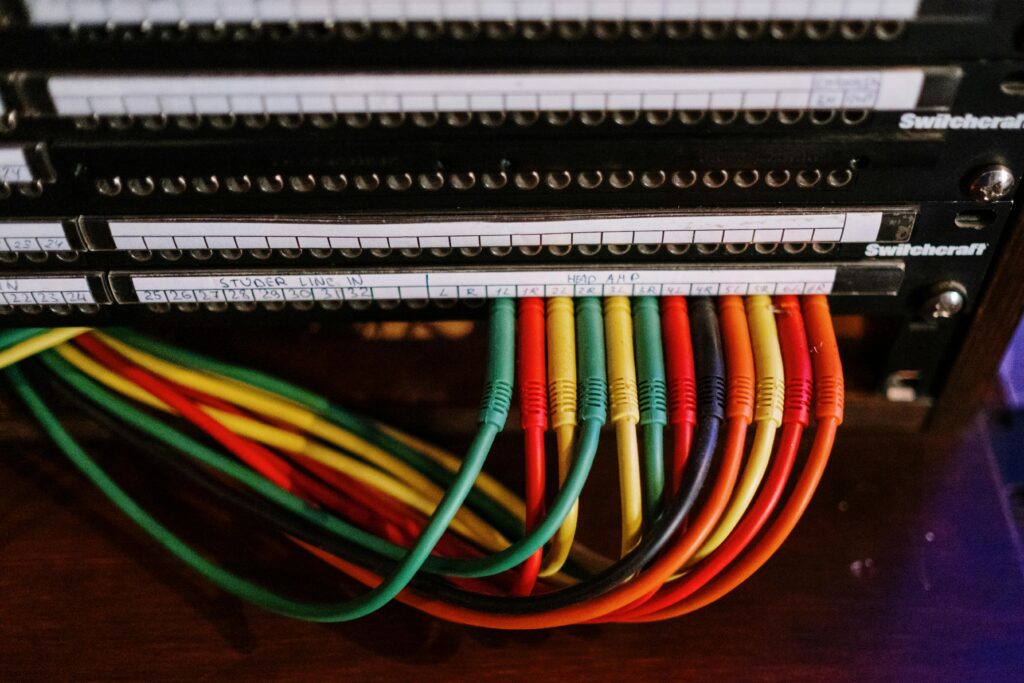In today’s fast-paced digital age, data centers have become the backbone of modern businesses. They store and manage vast amounts of data critical to the smooth running of operations. However, as data centers continue to grow in size and complexity, ensuring compliance within their equipment becomes increasingly crucial. This article aims to provide a comprehensive guide on how businesses can ensure compliance within their data center equipment.
What is Compliance within Data Center Equipment?
Compliance within data center equipment refers to the adherence to regulations, standards, and best practices that ensure the proper operation of data center equipment. The primary goal of compliance is to ensure that data center equipment operates efficiently, securely, and reliably.
Compliance For Efficiency, Security and Reliability
Compliance within data center equipment is crucial for ensuring that data centers operate efficiently, securely, and reliably. Compliance can involve adhering to regulatory standards and best practices that dictate how data center equipment should operate. This helps to ensure that data center operators meet their obligations to their customers and regulatory bodies.
Risk Mitigation and Security
One of the most significant benefits of compliance is that it can help to minimize the risk of data breaches and other security threats. Data center operators must ensure that they adhere to stringent data security standards to prevent unauthorized access to sensitive data. Compliance can also help to ensure that data center equipment operates at optimal levels, minimizing downtime and reducing the risk of data loss or corruption.
Adherence to Industry Best Practices
In addition to regulatory compliance, data center operators must also adhere to industry best practices. These practices help to ensure that data center equipment operates optimally and that data is stored and managed appropriately. For example, data center operators may implement best practices for server maintenance, backup and recovery, and disaster recovery planning. This helps to ensure that data center equipment is always available and that data is protected from loss or corruption.
Compliance for Businesses
Importance for Businesses Utilizing Data Centers
Compliance within data center equipment is also important for businesses that use data centers for their operations. These businesses must ensure that the data center equipment they use complies with regulatory standards and industry best practices. Failure to do so can result in legal and financial penalties, damage to their reputation, and loss of customers.
Establishing a Robust Compliance Program
Components of a Compliance Program
To ensure compliance, data center operators must have a robust compliance program in place. This program should include policies and procedures for data security, privacy, and transparency, as well as regular audits and assessments to ensure compliance with regulatory standards. Data center operators should also invest in training and education for their staff to ensure that they are aware of the latest compliance requirements and best practices.
The Significance of Compliance in Data Center Equipment
Compliance within data center equipment is essential for ensuring the proper operation of data centers and the protection of sensitive data. Compliance involves adhering to regulatory standards and industry best practices, which help to minimize the risk of data breaches, downtime, and data loss or corruption. Data center operators and businesses that use data centers must ensure that they comply with these standards to avoid legal and financial penalties and to protect their reputation and customers. A robust compliance program is necessary to ensure that data center equipment operates optimally and securely.
Why is Compliance Important?
Compliance is crucial in today’s business landscape due to the rise in data breaches and cyber attacks. Non-compliance can lead to fines, lawsuits, and damage to reputation. By adhering to compliance standards, data center equipment operates optimally and mitigates these risks.
Data breaches and cyber attacks have become more common and sophisticated, making compliance essential. Data center equipment holds sensitive information and is a prime target for cyber criminals. Failure to comply can result in severe consequences, including financial losses and reputational damage.
Non-compliance brings hefty fines and legal repercussions, while also eroding consumer trust and business opportunities. Compliance ensures efficient, secure, and reliable data center operations. It reduces the likelihood of breaches and demonstrates commitment to data privacy and security, fostering transparency with customers and regulators.
Compliance not only mitigates risks but also offers benefits like improved efficiency, cost savings, and staying ahead of industry trends. By embracing compliance, data center operators can operate securely and reliably, driving long-term success and growth in a rapidly evolving business environment.
Exit Technologies’ Role in Ensuring Compliance through IT Equipment Decommissioning
One important aspect of compliance is the proper disposal of old IT equipment. Data center operators must ensure that their old equipment is securely and properly disposed of to protect sensitive data and to meet regulatory compliance standards. Exit Technologies is a company that specializes in the secure and eco-friendly decommissioning of IT equipment.
Exit Technologies’ IT equipment decommissioning services ensure that data center operators are in compliance with regulations such as FISMA, HIPAA, and SOX. The company’s decommissioning process includes data destruction, asset tracking, and proper disposal of equipment in compliance with environmental regulations.
Data destruction is a crucial component of IT equipment decommissioning, as it ensures that sensitive data does not fall into the wrong hands. Exit Technologies uses a multi-step data destruction process that meets industry standards, including NIST SP 800-88 and DoD 5220.22-M. The company can provide certificates of data destruction as evidence that data has been securely erased.
Exit Technologies’ asset tracking capabilities allow data center operators to keep track of their equipment throughout the decommissioning process. The company uses a proprietary asset tracking system that provides real-time updates on the status of equipment, from the moment it is picked up to the moment it is securely destroyed.
Proper disposal of IT equipment is also critical to compliance. Exit Technologies ensures that equipment is disposed of in an environmentally friendly way, in compliance with regulations such as the Resource Conservation and Recovery Act (RCRA) and the Waste Electrical and Electronic Equipment (WEEE) Directive. The company recycles as much of the equipment as possible, reducing the amount of e-waste that ends up in landfills.
By using Exit Technologies’ IT equipment decommissioning services, data center operators can be confident that their old equipment is securely and properly disposed of, ensuring compliance with regulatory standards and protecting sensitive data.
Regulatory Compliance In Data Center Equipment
In the United States, data center operators are subject to regulatory compliance standards such as the Federal Information Security Modernization Act (FISMA), the Health Insurance Portability and Accountability Act (HIPAA), and the Sarbanes-Oxley Act (SOX). These regulations require data center equipment to meet specific requirements for data security, privacy, and transparency.
Federal Information Security Modernization Act (FISMA):
- Requires federal agencies to develop, document, and implement agency-wide information security programs
- Sets out minimum security standards for information and information systems
- Requires regular security risk assessments and continuous monitoring of systems
FISMA is a federal law that sets out requirements for information security, including data center equipment. It requires data center operators to implement security controls and comply with security standards to protect federal information and systems from unauthorized access, use, disclosure, disruption, modification, or destruction.
Health Insurance Portability and Accountability Act (HIPAA):
- Protects the privacy and security of individuals’ health information
- Sets out standards for the electronic exchange, privacy, and security of health information
- Requires covered entities to implement administrative, physical, and technical safeguards to protect health information
HIPAA, on the other hand, is a regulation that requires healthcare organizations to safeguard the privacy and security of patients’ protected health information (PHI). Data centers that store or process PHI must comply with HIPAA’s technical, administrative, and physical safeguards, which include measures such as encryption, access controls, and regular security audits.
Finally, the Sarbanes-Oxley Act (SOX) is a federal law that requires publicly-traded companies to establish and maintain adequate internal controls over financial reporting. Data center operators that provide services to these companies must comply with SOX’s provisions, which include requirements for data accuracy, retention, and security.
Non-compliance with these regulations can result in significant financial penalties and legal repercussions. Therefore, data center operators must ensure that their equipment and processes comply with these standards to avoid any potential breaches.
Best Practices for Compliance within Data Center Equipment
- Regular Audits
Regular audits ensure that data center equipment is operating correctly and meets regulatory standards. Audits should be conducted at least once a year and more frequently for critical systems.
- Standard Operating Procedures (SOPs)
SOPs are a set of instructions that outline how data center equipment should operate. They should be documented, updated regularly, and made accessible to all relevant parties.
- Data Backups
Data backups are essential for disaster recovery and business continuity. Data backups should be conducted regularly, and backups should be stored offsite in secure locations.
- Security
Data center equipment should be physically secure, and access should be restricted to authorized personnel only. The equipment should also be protected by firewalls, antivirus software, and intrusion detection systems.
- Environmental Controls
Data center equipment is sensitive to temperature and humidity changes. Environmental controls, such as air conditioning, should be implemented to maintain optimal temperature and humidity levels.
Compliance within Data Center Equipment Summary
In conclusion, regulatory compliance within data center equipment is crucial for businesses to mitigate the risks of data breaches, cyber attacks, hefty fines, legal repercussions, and reputational damage.
Exit Technologies can help companies comply with regulations when decommissioning old IT equipment, ensuring that all data is erased securely and in accordance with regulatory standards. By following best practices such as regular audits, SOPs, data backups, security measures, and environmental controls, businesses can ensure compliance within their data center equipment.
Compliance is an ongoing process that requires commitment and dedication from all stakeholders. By partnering with a reputable IT asset disposition (ITAD) provider like Exit Technologies, businesses can ensure that their IT equipment is decommissioned in a compliant manner and that all sensitive data is erased securely, mitigating risks and safeguarding their operations.





